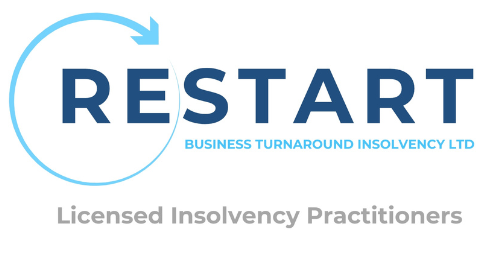
What Are the Pros & Cons of Filing for Bankruptcy?
In the face of overwhelming financial struggles, bankruptcy can be seen as both a lifeline and a daunting step for individuals and businesses in the UK. Bankruptcy is a legal process that allows insolvent debtors to discharge their debts and obtain a fresh start financially. However, it is not without its drawbacks and potential consequences.
So, what are the pros and cons of filing for bankruptcy? Bankruptcy allows for your debt to be completely wiped in order for you to have a financial fresh start. However, it can have significant negative effects for your credit rating, and is subjected to monetary limitations that restrict your financial freedoms.
If you’re considering bankruptcy, it’s important to seek the help from an Insolvency expert at Restart BTi to explore which option is best for you. Our experts will work with you to provide you with tailored confidential advice that will help you to understand your options, and which decision is best for you in the long term. For now, if you’re looking to learn more about bankruptcy and what this means for you or your business, simply keep reading this short guide that our experts have put together.
What Are the Advantages and Disadvantages of Bankruptcy?
As with any financial decision, there are pros and cons to filing for bankruptcy. In order to make an informed decision, it’s important that you’re aware of all the different ways this decision can benefit and impact you. We’ve listed the pros and cons below for you to explore.
The Advantages of Filing for Bankruptcy
Debt Discharge and Fresh Start
One of the most significant advantages of filing for bankruptcy is the opportunity to discharge debts and start fresh. Once a bankruptcy order is granted, unsecured debts such as credit card debts or personal loans are typically discharged, meaning they are no longer legally enforceable. This provides relief to the debtor, allowing them to break free from the burden of unmanageable debts.
Protection from Creditors
Filing for bankruptcy invokes an automatic stay, which prevents creditors from taking any further legal action or pursuing debt collection efforts against the debtor. This protection offers a respite for individuals or businesses facing mounting pressure from creditors, preventing repossessions, wage garnishments, and other creditor actions.
Debt Repayment Plan
Individual Voluntary Arrangements (IVAs) and Debt Relief Orders (DROs) are alternatives to bankruptcy in the UK. However, bankruptcy has an advantage in terms of a time-bound debt repayment plan. In most cases, bankruptcy lasts for one year, after which the debtor is discharged from their debts. IVAs, on the other hand, can extend for several years.
Assets Protection (Subject to Limitations)
Contrary to popular belief, bankruptcy does not necessarily mean losing all assets. The Insolvency Act 1986 and subsequent amendments offer exemptions for certain assets, protecting them from being sold to repay creditors. For instance, basic household items, tools necessary for employment, and a reasonable amount of personal belongings are usually safeguarded.
Psychological Relief
Financial struggles and overwhelming debts can have a severe impact on an individual’s mental well-being. Filing for bankruptcy can provide psychological relief, reducing stress and anxiety associated with financial uncertainty. It offers a chance to rebuild your life without the constant weight of unmanageable debts.
The Disadvantages of Bankruptcy
Credit Score and Future Financial Options
Bankruptcy has a detrimental impact on an individual’s credit score. The bankruptcy record stays on the credit report for six years in the UK, making it challenging to obtain credit or loans during that period. Even after the bankruptcy is discharged, it can still affect creditworthiness for some time, limiting access to financial options.
Public Record
Bankruptcy proceedings are public records, meaning anyone can access the information. This lack of privacy can be uncomfortable for some individuals, as their financial troubles become a matter of public knowledge.
Employment and Professional Consequences
Certain professions and job roles have strict regulations concerning bankruptcy. For instance, individuals working in the financial sector or those holding positions of financial responsibility may face termination or difficulties in finding future employment after declaring bankruptcy.
Impact on Property and Assets
Though some assets may be protected, others could be at risk of being sold to repay creditors. Secured debts, such as mortgages and car loans, may still need to be repaid, and failure to do so can result in the loss of the associated assets.
Restrictions on Financial Activities
Bankruptcy may impose restrictions on certain financial activities for individuals and directors of insolvent companies. For example, individuals declared bankrupt cannot act as company directors or take credit of £500 or more without disclosing their bankruptcy status. These restrictions can be a hindrance for entrepreneurs and professionals.
What is Bankruptcy?
Bankruptcy is a legal process that provides relief to individuals and businesses who are unable to repay their debts. It is a formal declaration of insolvency, signaling the inability to meet financial obligations. The primary purpose of bankruptcy is to offer a fresh start to debtors burdened with overwhelming debts and to provide a fair distribution of available assets among creditors.
When a person files for bankruptcy, they are essentially asking the court for protection from creditors and an opportunity to resolve their financial troubles. The process involves a systematic evaluation of the debtor’s assets, liabilities, and financial affairs, overseen by the court and governed by specific laws and regulations.
Bankruptcy is a significant step with long-term financial implications, and individuals and businesses considering this option should seek professional advice from insolvency practitioners to fully understand the potential consequences and explore alternative solutions before proceeding.
Get Expert Debt Help From Restart BTi
If you’re worried about your debts, don’t struggle alone. Our experienced Insolvency Practitioners are here to offer you free, confidential advice. Simply explore our website to learn more about us, or contact us today using the form below. Please specify a date and time that is the best for us to contact you, and one of our trusted advisors will be in touch.

Established in 2018, the directors at Restart BTi have over 50 years of experience to assist companies, business owners and individuals with expert advice and tailored solutions when facing financial difficulties.
